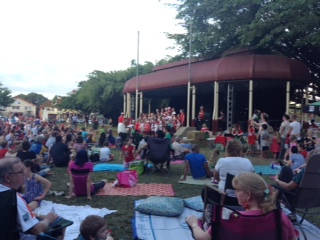The Irish in you.
In the darkest years of
the Famine in 1847, nearly 300,000 Irish arrived at the port of Liverpool - of
this vast number nearly 130,000 emigrated to the United States. Those who
couldn't afford the fare, or who remained, faced a hard battle for
survival. Consider that the majority of these people had suffered great
trauma, bereavement, starvation and homelessness. On arrival on the
mainland, particularly for those with no family to go to, the level
of disorientation experienced could hardly be imagined.
Early Emigrants
In 1847,
two young Oxford scholars, G.F Boyle and Lord Dufferin travelled to Skibbereen
in County Cork.
The two
young men were shocked and moved by what they had witnessed.
In some
cottages 'dead bodies had lain putrefying in the midst of the sick remnant
of their families, none strong enough to remove them, until the rats and decay
made it difficult to recognise that they had been human beings'
The two
young scholars were so horrified by what they saw that they wrote the Narrative
of a Journey from Oxford to Skibbereen in order to raise funds for
famine relief.
‘The
scenes we have witnessed during our short stay at Skibbereen, equal anything
that has been recorded by history, or could be conceived by the imagination.
Famine, typhus fever, dysentery, and a disease hitherto unknown, are sweeping
away the whole population. The poor are not the only sufferers: fever is
spreading to every class, and even the rich are becoming involved in the same
destruction.
'At the
end of every stage, the coach was surrounded by crowds of wretched creatures
begging for something to eat, wan little faces thrusting themselves in at the
window, praying "the kind gentleman just for one ha'penny to buy a
penn'orth of bread."
'The poor
have pawned nearly every article of furniture which they possess, in order to
obtain food; the number of tickets at the brokers is almost incredible; many
have thus parted with the means of future subsistence, as in the case of some
fishermen, who have pawned their boats and nets, and so deprived themselves of
the power of deriving benefit from the fish, which abound along the coast. We
entered another at no great distance: over a few peat embers a woman was
crouching, drawing her only solace from their scanty warmth; she was suffering
from diarrhoea: there seemed scarcely a single article of furniture or crockery
in any part of the hut. The woman answered the enquiries of Mr Townsend in a
weak and desponding voice; and from what we could gather, there appeared to be
several other human beings in different corners of the hovel, but in the
darkness we were totally unable to distinguish them'
Digging for potatoes
Famine funeral






















































